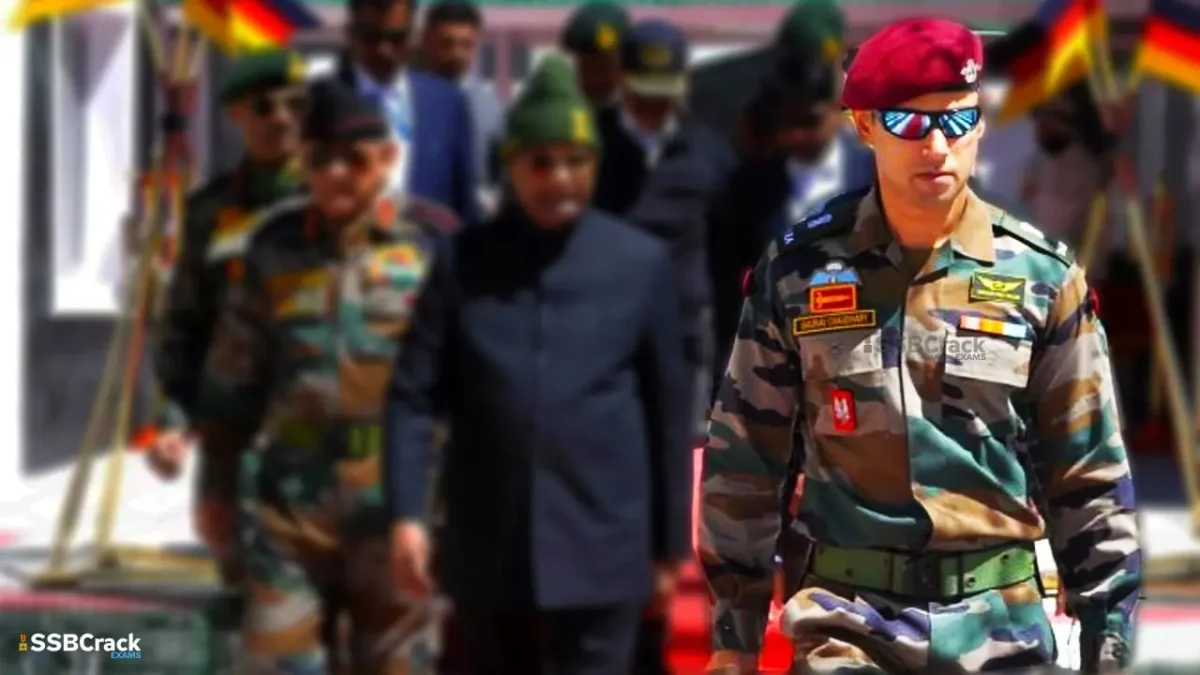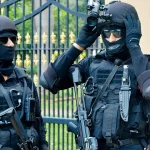To become an Aide-de-Camp (ADC) to the President of India is a distinguished aspiration for many serving officers in the Indian Armed Forces. This prestigious position not only signifies honor but also embodies a noble commitment to the constitutional duties and responsibilities laid forth by the office of the President. It represents a unique blend of ceremonial duties, strategic liaison, and administrative responsibilities at the highest echelons of governance. In this article, we will explore the pathway to becoming an ADC, looking closely at the eligibility, selection process, roles, and responsibilities while also reflecting on the historical context and future outlook of this esteemed position.
Historical Context
The role of the ADC has its roots in colonial India when administrative functions were closely intertwined with military authority. As the governance system evolved post-independence, the ADC’s duties have matured into a function that bridges civil-military relations, affirming the importance of the armed forces in nation-building and governance. The ADCs ensure that the President, who serves as the head of state and supreme commander of the armed forces, is well-supported in executing numerous formal obligations.
Historically, the ADC role was largely male-dominated, representing a significant cultural structure of the armed forces. However, recent changes depict a progressive shift; for instance, the appointment of Lt Commander Yashasvi Solankee as the first woman ADC to the President underlines this evolution and marks a crucial step towards inclusivity within the armed forces, reflecting broader governance priorities under President Droupadi Murmu.
Eligibility & Selection
Who Can Become an ADC?
- Commissioned Officers Only: To be considered for the role of ADC, candidates must be commissioned officers currently serving in the Indian Army, Navy, or Air Force.
- Years of Service: Typically, a minimum of 5 to 7 years of exemplary service is required, which serves as an indication of the requisite experience and leadership qualities needed for this high-ranking position.
The Selection Process
The selection of ADCs is an internal process managed by the respective branches of the armed forces. This process is characterized by its rigor and thoroughness, ensuring that only the most qualified individuals are chosen.
- Performance Evaluation: The assessment of candidates includes a detailed review of service records, focusing on leadership capabilities and administrative competencies.
- Screenings and Checks: Candidates must pass rigorous security and background checks, which are crucial given the sensitive nature of the responsibilities involved.
- Personal Interviews: A crucial aspect of the selection process is the interview phase, where candidates meet with high-ranking officials and potentially even the President, ensuring compatibility with the expectations of the position.
The armed forces maintain high standards not only in terms of service records but also concerning physical fitness and personal conduct.
Required Qualifications and Skills
To transition from a commissioned officer to an ADC, certain qualifications and skills are pivotal:
- Professional Background: Successful candidates should possess strong leadership and organizational skills developed during their military careers.
- Communication Proficiency: Fluency in English and at least one Indian language is essential, as the ADC will be frequently interfacing with various officials, diplomats, and other stakeholders.
- Administrative Acumen: ADCs must exhibit strong administrative abilities, particularly in managing schedules, correspondence, and event coordination. This requires a keen eye for detail and the ability to prioritize effectively.
- Maintaining Confidentiality: Given the nature of the role, ADCs must maintain the utmost confidentiality regarding governmental affairs and protocols.
- Physical Standards: There are minimum physical fitness standards, including height requirements (reportedly around 173 cm for recent appointments) which candidates must meet to ensure they represent the office well in ceremonial duties.
Role and Responsibilities
Being an ADC involves a range of duties, primarily supportive and liaison-based, requiring a unique skill set that combines military discipline with organizational acumen:
- Administrative Support: ADCs manage the daily schedule of the President, coordinating meetings, appointments, and engagements. This involves extensive liaisoning with different departments of government.
- Ceremonial Functions: ADCs play a prominent role in official ceremonies, ensuring adherence to protocol while also representing the President’s authority during formal occasions.
- Travel Coordination: The ADC handles logistics related to the President’s travel, ensuring security and efficiency during official trips.
- Communication Bridge: Acting as the key liaison between the President’s office and other branches of the government, ADCs facilitate the smooth exchange of information and directives.
Training for ADCs
Once selected, ADCs are not left to fend for themselves; they undergo specialized training that equips them with the necessary skills and knowledge to successfully fulfill their roles:
- Military and Governmental Protocols: Training covers comprehensive knowledge of military and governmental protocols essential for maintaining the decorum of the office.
- Security Procedures: ADCs are trained in security protocols critical for ensuring the President’s safety, particularly in public engagements and events.
- Advanced Administrative Skills: Refresher courses in administrative studies further explore effective time management, communication strategies, and public relations to support their duties.
Statistical Data and Research Insights
While specific statistics related to the ADC selection process are not always publicly available, the general ethos of the Indian Armed Forces emphasizes meritocracy. This is further validated by rigorous selection criteria that filter out candidates not meeting the high standards expected of the ADCs.
According to data gathered from defense reports and internal assessments, about five ADCs support the President: three from the Army, one from the Navy, and one from the Air Force, with an honorary ADC from the Territorial Army at times. The competitive nature of the ADC appointments has shown a steady increase in the number of applicants, underlining the prestige associated with this role within military circles.
Challenges and Solutions
While the path to becoming an ADC may seem straightforward, candidates face several challenges:
- Intensifying Competition: As more individuals aspire to join the ranks of ADCs, the competition becomes fiercer. Candidates need to maintain exceptional service records with consistent performance metrics.
- Solution: Emphasizing professional development through leadership workshops and seminars can help candidates distinguish themselves.
- Balancing Military Duties and ADC Roles: Many candidates may struggle to balance the rigorous demands of their already demanding military positions with the additional expectations as an ADC.
- Solution: Providing part-time training and mentorship programs through established ADCs can offer practical insights and strategies for time management.
Future Trends and Predictions
The role of ADCs is evolving, especially given changing social dynamics and the increasing representation of women in the armed forces. As defence policies become more adaptive and inclusive, one can expect broader recruitment strategies and enhanced educational resources focused specifically on ADC roles:
- Increased Representation: Following the landmark appointment of Lt Commander Yashasvi Solankee, we may see a broader push towards gender equality in military appointments.
- Digital Proficiency: With advancing technology, the administration involved in an ADC’s role will likely embrace digital tools and platforms which increase efficiency in scheduling and communication.
- Inter-branch Collaborations: Greater interaction between the different branches of the armed forces and government could lead to more cooperative leadership programs aimed at producing well-rounded potential ADCs.
Conclusion
Becoming an Aide-de-Camp to the President of India is not merely about personal ambition; it epitomizes a commitment to service, discipline, and excellence within the Indian Armed Forces. The path is steeped in rigorous selection processes, demanding qualifications, and a significant commitment to the responsibilities associated with the office.
In essence, the ADC is a role that symbolizes the vital partnership between the military and civil governance, reflecting both a respect for tradition and an embrace of modernity. As aspiring candidates embark on this journey, they should not only prepare for the demands of the role but also recognize the profound impact they can have on the governance of the nation. The future beckons with an evolving landscape, presenting unique opportunities for those willing to serve our country at the highest levels of leadership.
For aspiring ADC candidates, resources like SSBCrack and SSBCrackExams, with their comprehensive study materials, online courses, and focused eBooks, can provide the necessary guidance and insight into excelling in this highly competitive selection process. The journey may be challenging, but the honor that comes with serving at the President’s side is unparalleled.










